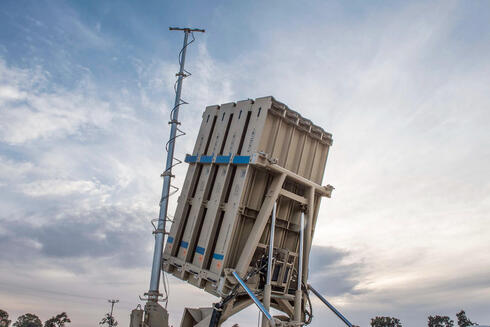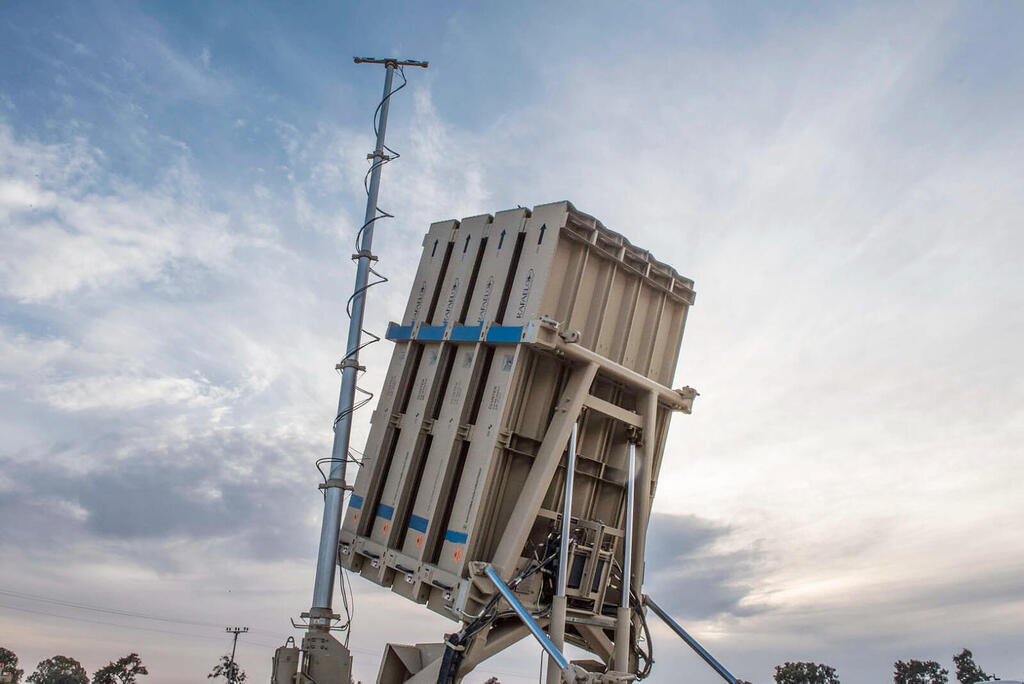
ISRAEL AT WAR
Israeli defense industries divert weapons production lines due to Gaza war
Elbit Systems, IAI, and Rafael were already loaded with orders from abroad due to the war in Ukraine, but demand has now increased locally with the Gaza war
The war in Gaza and the operational needs of the IDF, which is preparing for a ground offensive in the Gaza Strip alongside the possibility of opening another front against Hezbollah in the north, are presenting the defense industries with one of the most complex challenges they've ever faced. This may necessitate a reevaluation of their production plans, at least in the near future.
Even before the outbreak of the war in the south, Elbit Systems, Rafael, and Israel Aerospace Industries (IAI) had production lines working at full capacity due to a surge in orders over the past year and a half, primarily following the war between Russia and Ukraine.
Many armies in Europe that opened their ammunition armories to strengthen the Ukrainian army and equip it with the means of combat it needs against the Russian army began to replenish stocks - and found what they were looking for in Israeli industries while placing emphasis on the procurement of air defense systems and precision attack missiles.
Two main reasons contributed to the attractiveness of Israeli industries in the eyes of the procurement authorities of armies around the world: relevant and relatively reliable weapons that were developed in response to defense and attack scenarios that Israel dealt with during the past two decades, and the ability of Israeli industries, as opposed to American and European industries whose production lines are also full, to work and produce faster and therefore also to commit to shorter delivery times. These two key considerations tipped the scales in favor of companies from Israel when it came to competing in large procurement tenders managed by armies in Europe, South America and Asia.
On the eve of the signing of the Israel Aerospace Industries' Arrow 3 defense missile deal with Germany in the amount of approximately NIS 14 billion, Moshe Patel, Director of the Israel Missile Defense Organization in the Ministry of Defense, told Calcalist that with all the desire to provide the Germans with the missiles relatively quickly, their production plan will not affect or harm the supply for the IDF and therefore there will be no escape from investing in opening new production lines and in the recruitment and training of employees, a complex task in itself.
This rule also applies to other weapons systems so that now, with Israel going to war, the industries may find themselves under significant production pressures that they have rarely experienced in the past and against the background of the IDF's expectation that they will prioritize its needs.
Among Elbit's products used by the IDF in its ongoing ground warfare are the precision rockets "Romech" and "Kidon Kasum", mortar bombs and tank shells of the "Kalanit", "Hatsav" and "Rakefet" type, which the IDF has used extensively in combat rounds in the past and will likely also use in the planned ground offensive.
However, Elbit's production lines are already full, since it is committed to supplying such means to its customers who are arming themselves in Europe and elsewhere in the world, and even without Israel's troubles, it had to invest hundreds of millions of shekels in the past year to expand its production capacity in all its factories.
At the end of the week, Elbit's personnel recruitment staff launched an operation to recruit youth and veterans to man production lines at the export facility of the company's land division, at the former Taas (Israel Military Industries) facility in Ramat Hasharon. Hundreds answered the call, which promised adequate compensation in return for committing to a two-month work period for an 8-hour shift and with the possibility of overtime.
In response to Calcalist's inquiry, Elbit stated that "Elbit Systems is mobilized to support the needs of the IDF, operates in an emergency format and works 24 hours a day and 7 days a week. As part of this, we called on available workers to join our ranks."
Rafael has also switched to working around the clock at all of its production sites, where the interceptors of the Iron Dome and David’s Sling air defense systems are manufactured, and this, a few months after Rafael received the first order from an international customer, the Danish army, for the David’s Sling. Rafael stated: "The company is fully mobilized for the war effort to provide the IDF and the security establishment with the systems and capabilities they require."
"The priority of all of us is the IDF and the State of Israel," a senior official in the defense industries told Calcalist. "There is no company these days that does not operate all its lines and at full capacity, with 2 or 3 shifts for 24 hours a day. If Nicaragua is waiting for a missile, it will have to wait a little longer, and if we are talking about countries that are considered close friends of Israel, they will understand if we fall behind in supplies because we have a war here."
With the start of the war in the south, and as part of raising the alert for a war in the north, the IDF recruited more than 300,000 reservists at the beginning of the week which also affects the the defense companies.
Many of the employees of these companies are veterans of the security establishment and the army units, and some of them were called to the fronts and to the war rooms. Others experienced the loss of relatives, friends and acquaintances during the murderous attacks from the Gaza Strip. "We are all going through this together and committed to the national mission of supporting the war effort. We do what is possible, even with tears in our eyes and with heavy hearts," said an executive at one of the companies.
At the same time, with the realization of a scenario of continuous war, there is a potential for significant revenues.
The three largest companies finished the second quarter of the year with an increase in sales. Those of Rafael amounted to NIS 3.14 billion after growing by 30% compared to the second quarter of 2022; IAI reported a 9% increase in sales compared to the corresponding quarter, which amounted to $1.26 billion; and Elbit's sales grew by 11.5% compared to the corresponding period and amounted to approximately $1.45 billion. These three companies currently have their largest order backlog of all time, the scope of which is approaching approximately NIS 150 billion.














